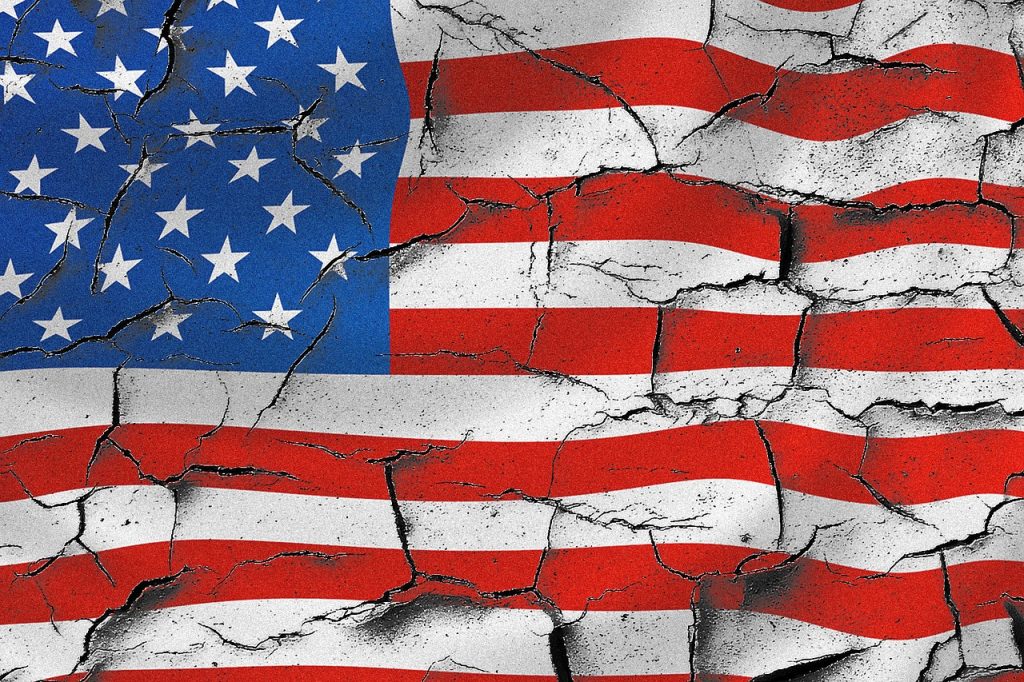In 1976, the Pulitzer committee awarded that year’s prize for history to Edmund Morgan, for his history of colonial Virginia. His work, entitled American Slavery, American Freedom, argued that white colonial Virginians owed their prosperity and liberty—even, eventually, their democratic and representative government—to the institution of slavery. Slavery was, moreover, the basis for colonial politics. “How,” Morgan asked, “did Virginia gentlemen persuade the voters to return the right kind of people to the House of Burgesses? How could patricians win in populist politics?” Both questions, Morgan said, led “to the paradox which has underlain our story, the union of freedom and slavery in Virginia and America.” To be denied slavery was to be denied economic opportunities. The individual’s chance at economic prosperity lay in his unfettered legal ability to acquire slaves. Slavery was liberty.
Lindy West of the New York Times recently, and similarly, insisted that unfettered access to abortion is essential to women’s economic and other liberties. Hers is one of many denunciations, by party activists and progressive journalists, of the Democratic Party’s decision to support pro-life Democrats running in more conservative districts. Pro-choice activists in the past decade made the leap from regarding abortion as a tragic necessity to seeing it a positive social good; West now sees it as the central guarantor of American liberty.
Democratic candidates are perfectly welcome to refrain from terminating their own pregnancies. But to be anti-choice on a policy level is absolutely indefensible from an economic justice, racial justice, gender justice and human rights standpoint. And if the Democratic Party does not stand for any of those things, then what on earth is it?
Like slavery, abortion has become in the leftist mind the central political issue, on which the economic and social liberties of the modern United States all hang.
Start your day with Public Discourse
Sign up and get our daily essays sent straight to your inbox.Never Compromise, Never Concede
Slavery’s centrality to the protection of southern liberty meant that slavery anywhere and everywhere, in whatever form and in whatever state, had to be protected, even to the point of bending and abrogating clearly articulated precedents and statutes. Americans in the nineteenth century universally understood that Congress held the right to control slavery in the District of Columbia, territory directly controlled by Congress. But in 1845, pro-slavery “Fire-eaters” in the South argued that congressional attempts to control slavery were not only illegal, but would eventually lead to the curtailment of slaveholders’ liberties.
For instance, James Henry Hammond, a virulently pro-slavery governor and US senator from South Carolina, warned his fellow slave-owners that conceding to Congress the ability to free enslaved people in the District of Columbia would threaten their economic freedom. Hammond believed that enslaved Americans were innately weak, and because of that weakness they did not have the rights that white Americans did. Hammond’s willingness to tie strength or perceived social worth to rights and human dignity foreshadowed Nietzsche as well as subsequent progressive justifications for abortion. Most importantly, Hammond explicitly tied holding slaves to white freedom. Prohibiting slavery was not a social benefit, but an actual harm and direct threat to the freedoms and liberties of slaveholders. Hammond quoted a pro-slavery tract and asked, exasperatedly, why anti-slavery advocates did not understand that if southerners allowed “liberty of the slave . . . they inevitably lose their own.”
John C. Calhoun began as an ambivalent planter, but his intellectual trajectory eventually found him proclaiming slavery a positive good—and then identifying it as a litmus test for the preservation of liberty. Any concession at all concerning slavery, “unless the act be expunged from the statute book,” might, Calhoun worried, “live forever, ready, on any pretext of future danger, to be quoted as an authority.”
Calhoun’s fear foreshadowed that of the abortion lobbyist who fights ferociously to preserve such grotesque operations as partial birth abortion. Pro-abortion extremists see pro-life activists as subverting women’s liberties; any impediment to abortion access, any suggestion that abortion is less than ideal, imperils a mother’s freedom to destroy her child’s life. Slavery’s advocates likewise agreed that one class of humans’ fates should be unquestionably controlled by another in order to preserve economic liberty. John Calhoun called abolitionists’ petitions “subversive of our political institutions, and fatal to the liberty and happiness of the country.”
On some level, Calhoun and other pro-slavery ideologues recognized that any “right” to slavery would be destroyed the moment the United States recognized that nature’s law affirmed the liberty of enslaved African Americans. Lindy West similarly holds that the human and civil rights of women would be undermined if the rights of the unborn were recognized. Even to question the right to abortion is “to be, at best, indifferent to the disenfranchisement, suffering and possibly even the death of women. At worst it is to revel in those things, to believe them fundamental to the natural order.” For West, abortion is the key to women’s economic, political, and social rights in the United States. If abortion were to be shown to be inconsistent with the natural order, then Lindy believes every freedom gained for women would evaporate.
Abortion and Economics
Abortion’s growing comfort within the capitalist order is not historically surprising. Slavery also increasingly insinuated itself into the capitalist order of the nineteenth century. Allen Guelzo, a historian at Gettysburg College, argues that slavery could have accommodated itself to whatever economic system society practiced. Slavery-supporting governments “would have found ways for slavery to evolve, from cotton-picking to cotton-manufacturing, and beyond.” Guelzo notes that “the Gone With the Wind image of the South as agricultural has become so fixed that it’s easy to miss how steadily black slaves were being slipped into the South’s industrial workforce in the decade before the Civil War.” Nearly half of the workers in Tennessee’s iron furnaces remained in human bondage. Industrial workers in Virginia’s cities tended to be enslaved as well. Slaveholding industrialists and capitalists appreciated enslaved workers. As one slave-owner put it, they proved “cheaper than freemen, who are often refractory and dissipated; who waste much time by frequenting public places . . . which the operative slave is not permitted to frequent.”
As in the case of slavery, economics proves to be the biggest motivator for abortion’s disciples. Political and social considerations prove to be little more than smokescreens. Economic opportunity and the chance for greater prosperity makes abortion a necessity. The economics of television and other media, as well as the corporate world, makes abortion especially helpful to women who might otherwise slow their own pursuit of prosperity. West affirms this unambiguously. “There is,” she declares, “no economic equality without the ability to terminate a pregnancy.” The demands of the modern marketplace will inevitably put women at a disadvantage if women are not allowed to terminate their pregnancies on demand.
Tellingly, West has transcended accusations that capitalism creates inequality. She concedes that it can create equality but believes that the equality will only be incomplete whenever abortion is prohibited or limited. “What good is an economic opportunity if large swaths of the population can’t access it?” Abortion, coupled with capitalism, represents economic opportunity that cannot be denied.
A Popular Arrangement
“Abortion is normal. Abortion is common, necessary and happening every day across party lines, economic lines and religious lines.” More importantly, West adds that abortion is legal and “contrary to what the pundit economy would have you believe, not particularly controversial.” Seventy percent “of all Americans oppose overturning Roe v. Wade, while 75 percent of Democrats believe abortion should be legal in all or most cases. These are not numbers that indicate controversy.”
Support for slavery’s toleration also proved relatively popular. While many Americans on the eve of the Civil War expressed their discomfort with slavery, only the small cadre of self-proclaimed abolitionists believed it should cease immediately without any conditions. When asked what percentage of the US population disagreed with outright abolition of slavery in 1859 or 1860, one historian of the Civil War supposed that 97 percent of Americans were “not abolitionists.” Americans who disagreed with slavery but were not abolitionists were still a minority, if the vote returns from the 1860 presidential election were representative. In that race, four men ran for office, but only one promised to do anything about slavery, and he was not an abolitionist; he only believed that slavery should not expand. He won the electoral college with less than forty percent of the popular vote. More than sixty percent of Americans in the 1860 election voted for candidates who were indifferent to or even supportive of slavery’s expansion.
Slavery remained the key to slaveholders’ conceptions of their economic and political liberties. And many Americans remained often indifferent to the real ramifications of that bastardized view of liberty. One slavery advocate was keen to distinguish freeing slaves and merely acknowledging their liberty: “Liberty may be one thing, and abolitionism quite another.”
It should be entirely unsurprising that another form of human bondage, even more immediate and grotesque in its finality, has been identified by progressives as the source of economic liberty. Slavery transformed from tragedy, to positive good, to the indispensable freedom of slaveholders. Abortion has likewise transmogrified from regrettable necessity (“safe, legal, and rare”), to positive good, to the essential liberty of the progressive left. As Lindy West declared without subtlety: “Abortion is not a fringe issue. Abortion is liberty.”













